If you’re looking for a unique and meaningful nickname for your child, consider the sun and moon. These celestial bodies have been the subject of fascination and inspiration for centuries, and their names offer a range of beautiful and unusual options for baby names.

Many cultures have their own names for the sun and moon, and these names can be a great way to honor your heritage or explore new cultural traditions. For example, in Spanish, the sun is known as “sol” and the moon is “luna,” while in Japanese, the sun is “taiyo” and the moon is “tsuki.” These names can be adapted to fit different genders and styles, and can be combined with other names to create unique and meaningful combinations.
In addition to their cultural significance, sun and moon names also offer a range of symbolic meanings. The sun is often associated with warmth, light, and energy, while the moon is associated with mystery, intuition, and feminine power. These meanings can be incorporated into your child’s personality and identity, and can serve as a source of inspiration and guidance throughout their life.
Cultural Significance of Sun and Moon Nicknames
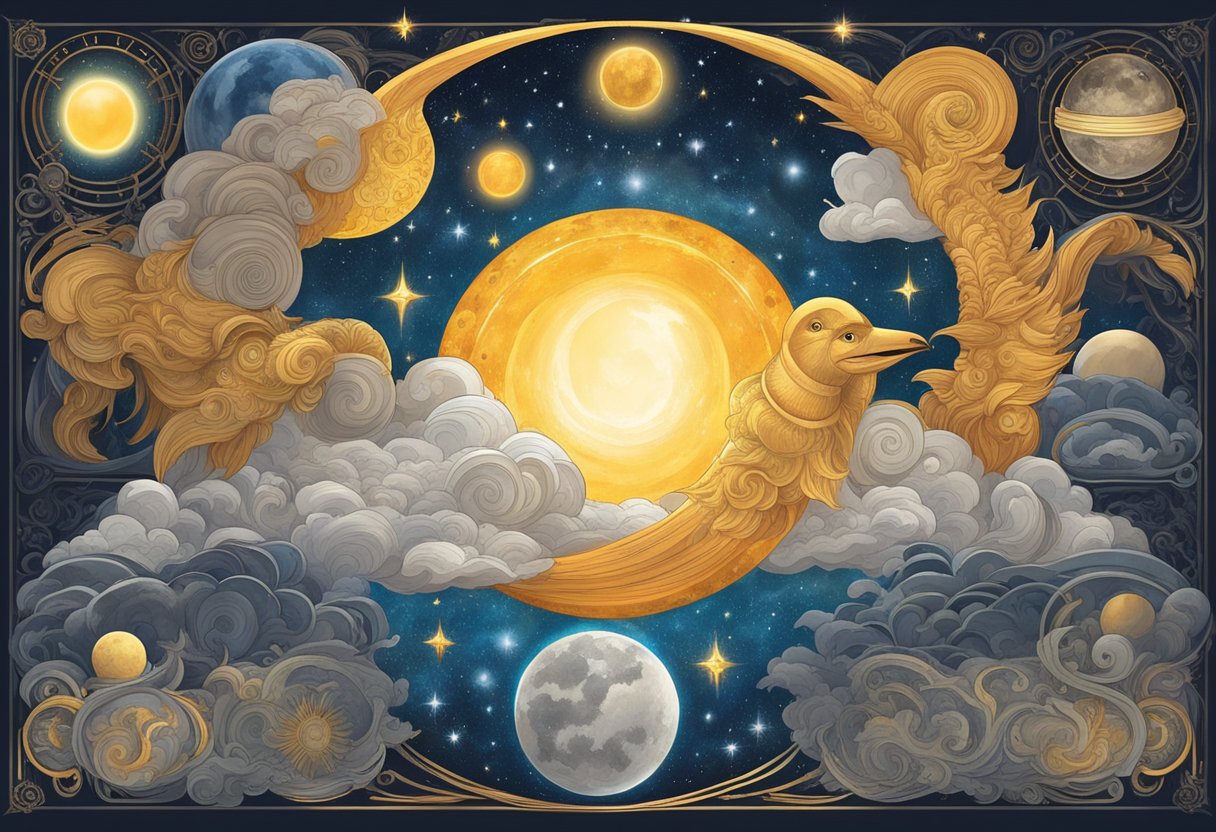
The sun and moon have been an integral part of human history and culture for centuries. People have given them various nicknames based on their historical context, mythological influence, and astrological associations.
Historical Context
The ancient Greeks named the sun “Helios” and the moon “Selene,” and they were considered gods. The Latin words for the sun and moon are “Sol” and “Luna,” respectively. The ancient Egyptians called the sun “Ra” and the moon “Thoth.” In Sanskrit, the sun is called “Surya,” and the moon is called “Chandra.” The Hebrew word for the sun is “Shemesh,” and the word for the moon is “Yareach.” In Spanish, the sun is “Sol,” and the moon is “Luna.” In Turkish, the sun is “Güneş,” and the moon is “Ay.” The Irish word for the sun is “Grian,” and the word for the moon is “Gealach.”
Mythological Influence
The sun and moon have also played a significant role in mythology. In Greek mythology, Apollo was the god of the sun, and Artemis was the goddess of the moon. In Roman mythology, Diana was the goddess of the moon. In Celtic mythology, the sun was associated with Lugh, the god of light, while the moon was associated with Cerridwen, the goddess of the moon.
Astrological Associations
Astrologers have also given the sun and moon various nicknames based on their astrological associations. The sun is associated with the zodiac sign Leo, and its nickname is “The Lion.” The moon is associated with the zodiac sign Cancer, and its nickname is “The Crab.” In Hindu mythology, the sun is associated with Surya, the god of the sun, and the moon is associated with Chandra, the god of the moon.
In conclusion, the sun and moon have been given various nicknames throughout history and across cultures. These nicknames reflect the historical context, mythological influence, and astrological associations of these celestial bodies.
Linguistic Variations and Origins
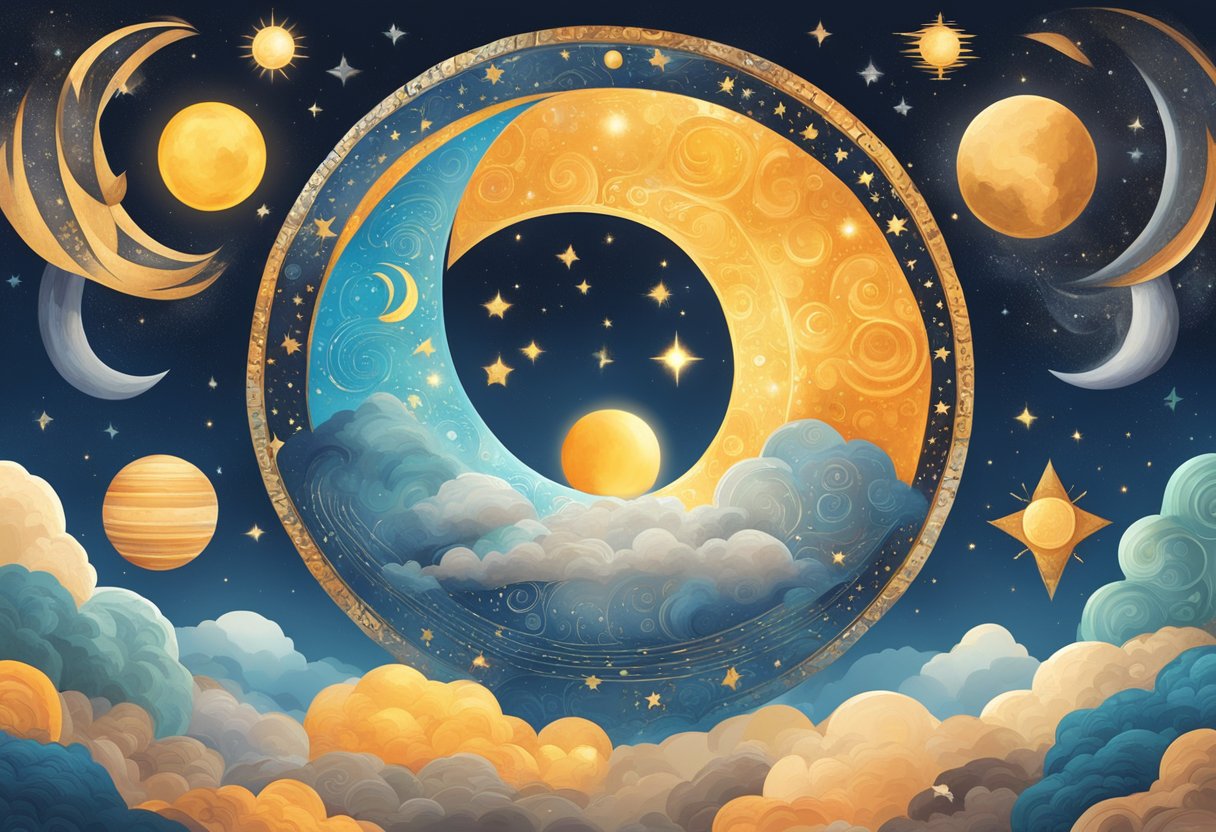
Names from Around the World
The sun and moon have been given various nicknames and names in different cultures around the world. In Hindi, the sun is called “Ravi” while the moon is called “Chandra”. In French, the sun is called “Soleil” and the moon is called “Lune”. In Indian culture, the sun is referred to as “Surya” and the moon as “Chandra”. The Greek name for the sun is “Apollo” and the moon is “Selene”. In Spanish, the sun is called “Sol” and the moon is called “Luna”. In Turkish, the sun is called “Güneş” and the moon is called “Ay”.
In English, the sun and moon are referred to simply as “sun” and “moon”, respectively. However, there are also various nicknames for them. The sun is sometimes called “Sunny” while the moon is sometimes called “Luna”. In Hawaiian, the sun is called “Lā” and the moon is called “Mahina”. In Japanese, the sun is called “Taiyō” and the moon is called “Tsuki”. The Latin origins of the words “sol” and “luna” are used in Italian and Spanish, respectively, to refer to the sun and moon.
Etymology and Language
The origin of the English word “sun” can be traced back to the Old English word “sunne” which is derived from the Proto-Germanic word “sunnon”. Similarly, the English word “moon” comes from the Old English word “mona” which is derived from the Proto-Germanic word “menon”.
The Hebrew name for the sun is “Shemesh” while the name for the moon is “Yareach”. The Persian name for the sun is “Khorshid” while the name for the moon is “Mah”. The Arabic name for the sun is “Shams” while the name for the moon is “Qamar”. The German origins of the words “sonne” and “mond” are used to refer to the sun and moon, respectively.
In Scandinavian culture, the sun is referred to as “Sól” while the moon is referred to as “Máni”. In French, the sun is sometimes referred to as “Soleil” and the moon as “Lune”. In Irish, the sun is referred to as “Grian” while the moon is referred to as “Luan”. The English origins of the words “sun” and “moon” are used to refer to the sun and moon in many languages around the world.
Overall, the sun and moon have been given various names and nicknames in different cultures and languages around the world. The etymology and origins of these names are often rooted in the language and culture of the people who use them.
Modern Usage in Popular Culture
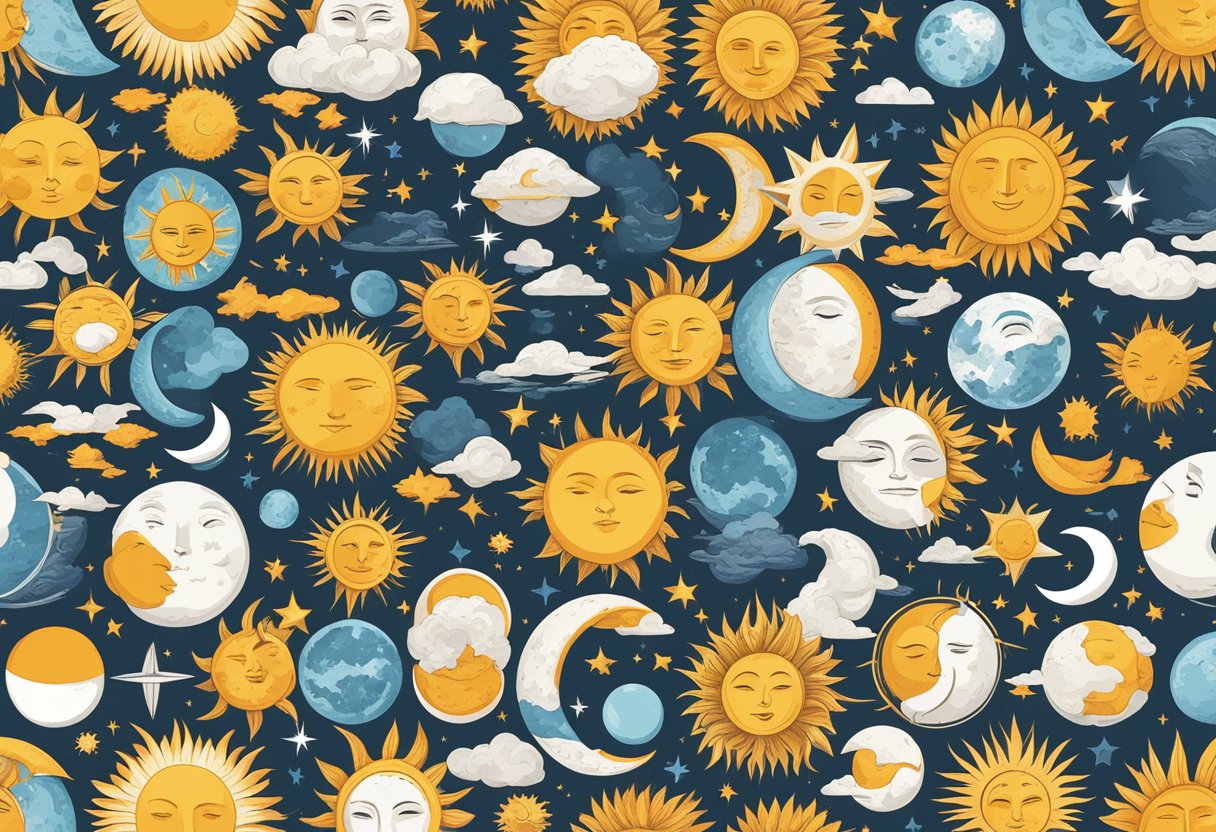
The sun and moon have been a significant part of human culture and mythology since ancient times, and their influence continues to be felt in modern popular culture. From media and entertainment to contemporary naming trends, the sun and moon remain a source of inspiration for many.
Media and Entertainment
The sun and moon have been featured in countless movies, TV shows, and books. They are often used as metaphors for life and death, light and darkness, and good and evil. For example, in the popular Twilight series, the main character’s name, Bella, means “beautiful” in Italian, while her love interest’s name, Edward, means “guardian of prosperity” in English. The series also features a character named Jacob, which means “supplanter” in Hebrew, who is associated with the moon.
The sun and moon have also been featured in video games, such as the popular Pokemon series. The Pokemon Solgaleo and Lunala are based on the sun and moon, respectively, and are central to the game’s story. In addition, the sun and moon have been used as symbols in music, such as in the song “Total Eclipse of the Heart” by Bonnie Tyler.
Contemporary Naming Trends
The sun and moon have also influenced contemporary naming trends. Parents often choose names that mean sun or moon for their children, such as Helios, Surya, Solana, Hinata, and Bianca. Girl names that mean sun include Phoebe, Atlas, and Celestia. Meanwhile, names that mean moon include Luna, Crescent, Aylin, and Sona. Gender-neutral names that mean sun or moon include Solaris and Lucian.
Nature names are also popular, with names such as Dawn, Sky, and River being common choices. Inspirational names, such as Hope and Faith, are also popular. Additionally, names associated with royalty, such as Queen and King, are sometimes used.
In conclusion, the sun and moon continue to be a source of inspiration for many in modern popular culture. From media and entertainment to contemporary naming trends, their influence can be seen in a variety of ways.



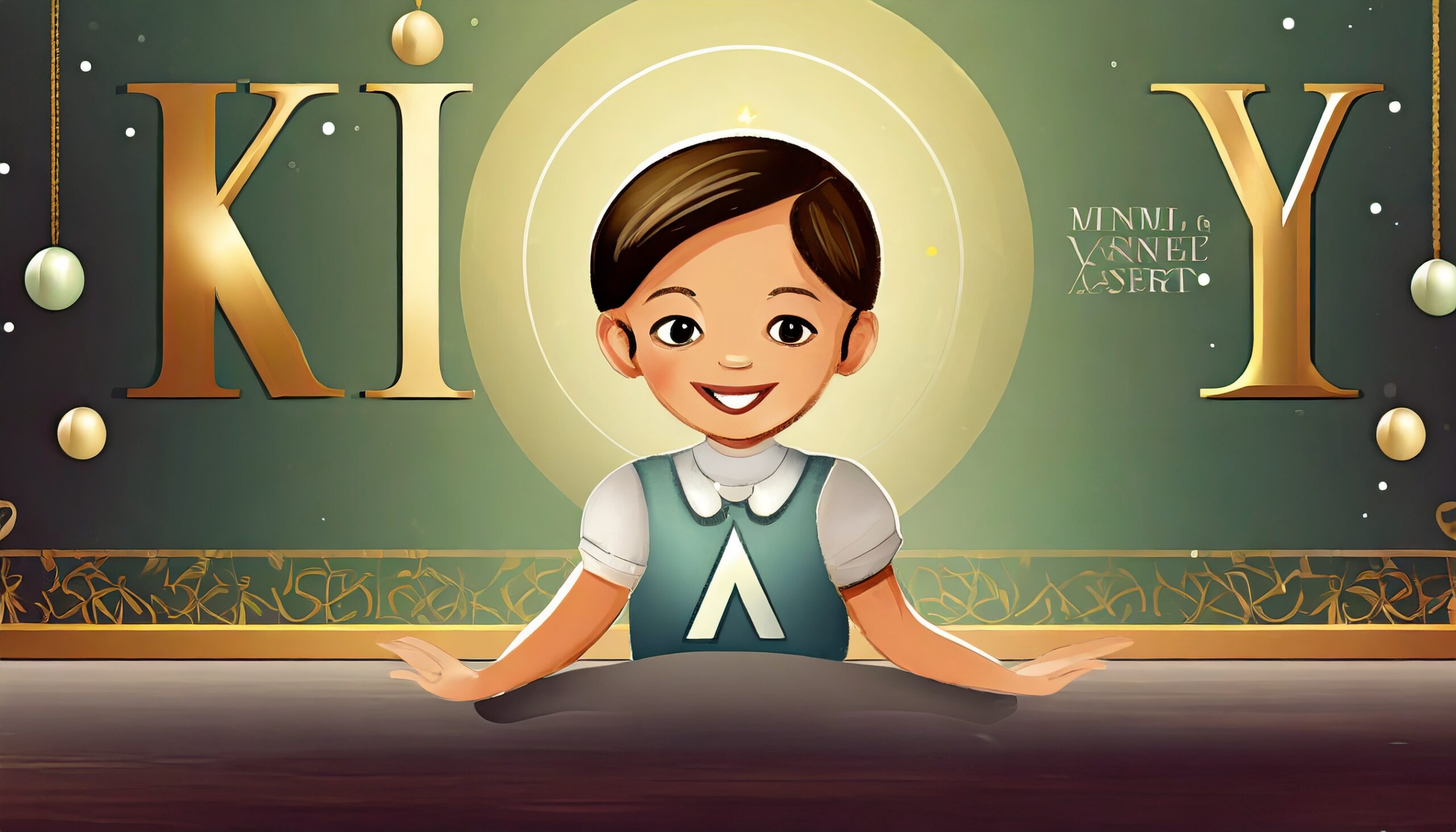
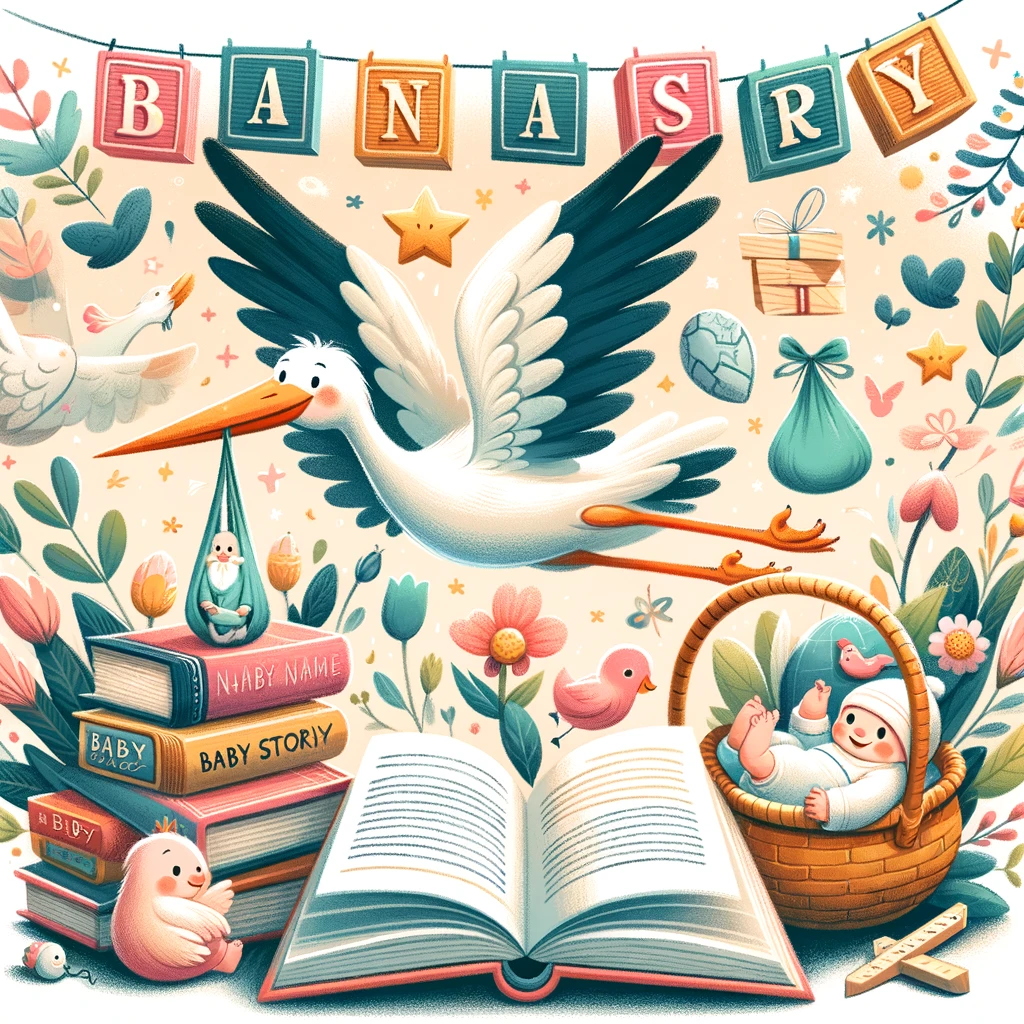
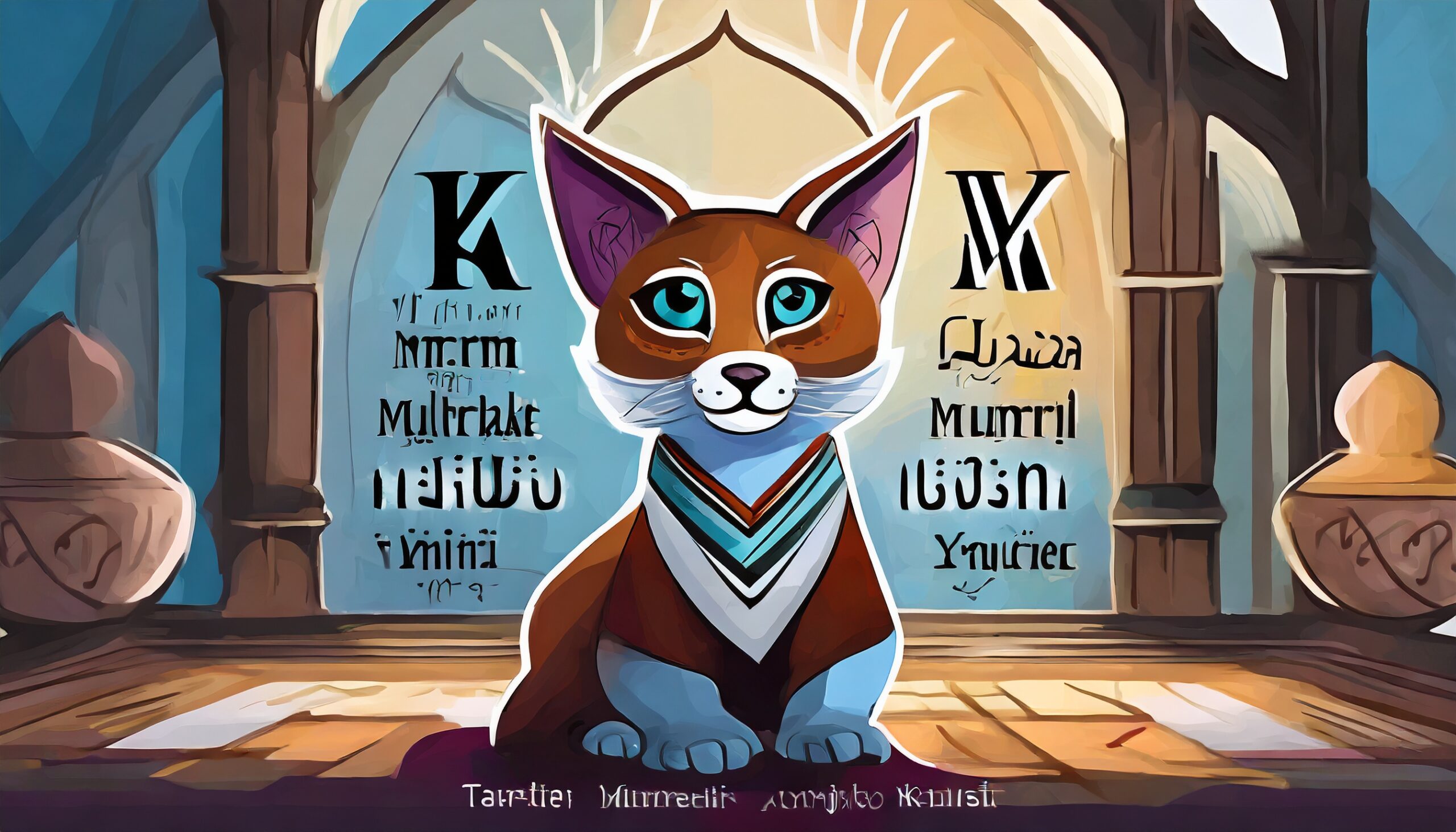
Bir yanıt yazın